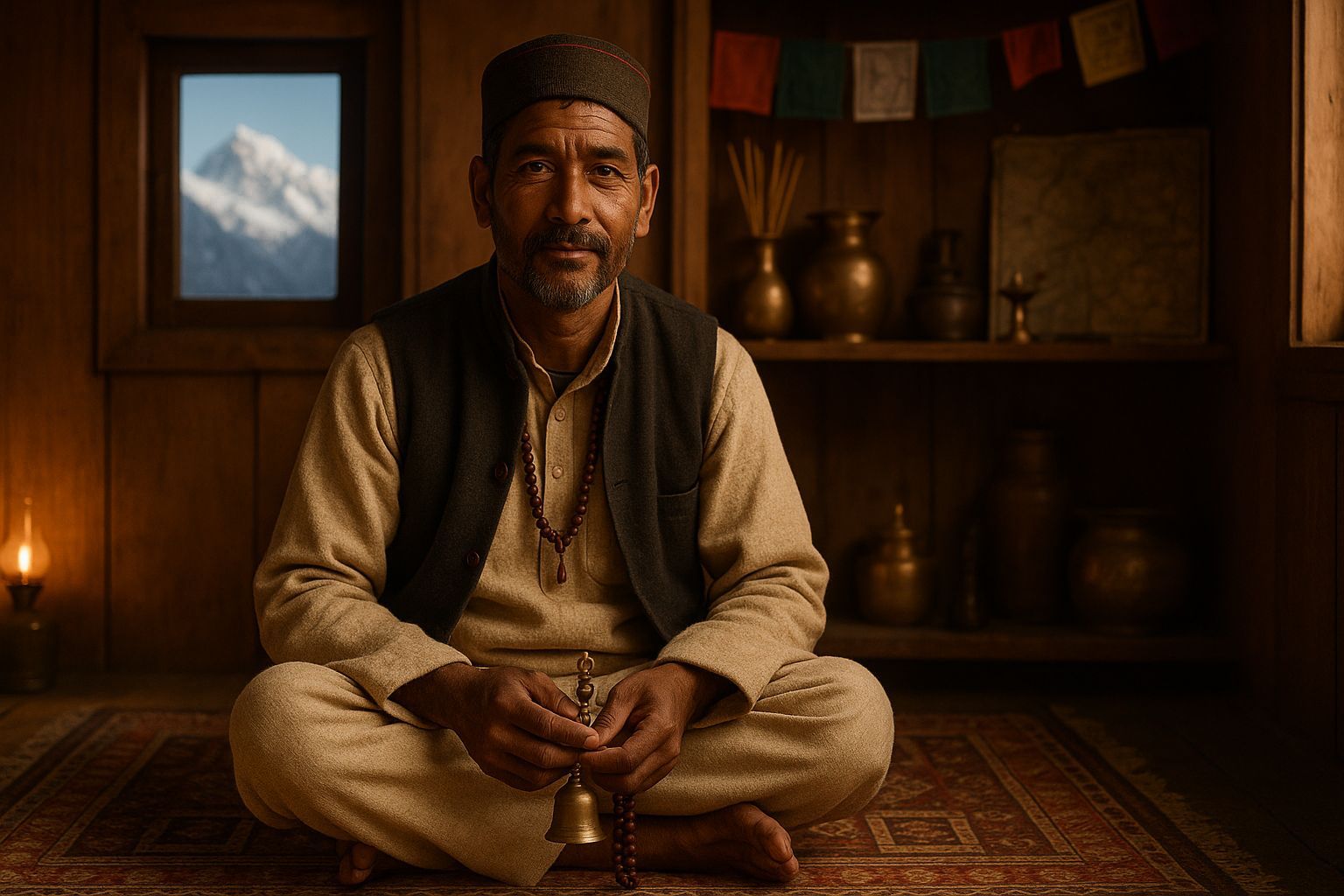DHARCHULA, UTTARAKHAND
Every pilgrim thinks they’re traveling to see God. Truth is, God is testing whether you’re ready to see yourself clearly.
Pandit Ramesh’s hands move with the precision of someone who has prepared thousands of prayer offerings for the most dangerous pilgrimage in India. At 48, he carries the weight of three generations of sacred responsibility on shoulders that have never known the luxury of failure.
His transformation from reluctant inheritor to devoted guide wasn’t immediate. “My grandfather started this work in 1947, helping refugees who had become pilgrims by accident. My father expanded it into proper pilgrimage guidance. I spent my twenties running away to Delhi, thinking I was too educated for ‘backward mountain traditions.'”
The mountains called him back through tragedy. “Lost a group of 12 pilgrims in 1998 avalanche because I trusted foreign guide companies over local knowledge. That night, I understood – this isn’t just family business. It’s sacred duty.”
His methods blend ancient wisdom with modern safety protocols. “Western trekking companies focus on equipment and logistics. Traditional pilgrimage focuses on spiritual preparation and surrender. Truth is, you need both. God helps those who respect the mountain properly.”
He’s guided over 2,000 pilgrims to successful darshan, including several who thought they were too old, too sick, or too spiritually unprepared for the journey. “The mountain doesn’t care about your resume or your fitness tracker. It cares about your intention and your respect.”
When I asked about his most difficult guidance challenge, he smiled quietly. “Every group teaches me something new about faith under pressure. But the hardest pilgrims to guide are those who think they already know everything about God.”
Some teachers change your technique. Pandit Ramesh changed my understanding of what it means to be responsible for others’ spiritual welfare.
– Zara
